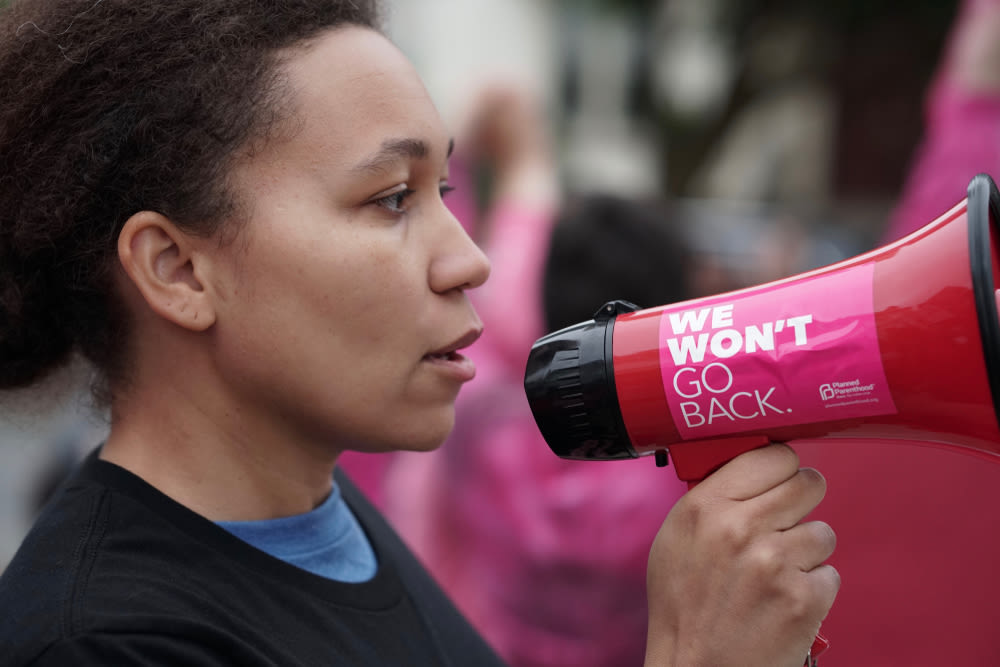What Happens to Abortion Access in Oregon if Roe Versus Wade is Overturned?

A draft Supreme Court opinion revealed less than 24 hours ago makes clear what activists have been saying for years: Roe versus Wade is in serious jeopardy. In the opinion published yesterday by Politico, Judge Alito wrote that “Roe and Casey must be overruled.” And while draft opinions can change, the revelation caused immediate outcry and concern across the country, including here in Oregon.
Local officials were quick to react. “All Americans should have access to abortion—full stop,” tweeted Governor Kate Brown, who in her time in office has signed into law some of the country's most expansive reproductive rights legislation. “Abortion is health care and protected by state law in Oregon. We will fight to keep it that way, no matter what this Supreme Court decides."
Former Oregon House Speaker Tina Kotek and State Treasurer Tobias Read, the leading Democratic candidates for Brown's position also weighed in quickly, both vowing to defend reproductive rights if elected, as did former Democratic State Senator Betsy Johnson, now running as an Independent.
Republican candidates, in contrast, were notably silent on the issue—Oregon Right to Life, the state's leading anti-choice organization, has endorsed four of the Republican frontrunners.
But how much are Oregonians' reproductive rights at risk if Roe v. Wade is overturned? Oregon was one of the first states to legalize abortion when it did so in 1969, even before Roe vs. Wade.
And to shore things up, the Reproductive Healthy Equity Act of 2017 “codified Roe into our statute,” as Planned Parenthood Advocates of Oregon Executive Director An Do told Portland Monthly back in September of 2021. Under that law, insurers are required to cover the costs of abortion care, as well as other reproductive health care.
That could change if Republicans win a majority in Congress in November and advance a federal ban on the procedure, though they would need a veto proof majority to make it past President Joe Biden. In the meantime, an overwhelming majority of Oregonians consider themselves pro-choice.
That doesn't mean the state isn't bracing for the impact from neighboring states. Here in Oregon, lawmakers passed the Reproductive Health Equity Fund as recently as March with this in mind, allocating funds to pay for those traveling to the state for abortion access.
With some states decreasing abortion access even in advance of the Supreme Court decision, Oregon’s healthcare providers could see themselves “deluged by women from the Midwest and South in need of abortions,” as we reported late last year. Nationally, lists of abortion funds in at-risk states that are in need of donations have already begun to circulate, while local reproductive rights organizations could also use support.
At least for the time being, however, abortion access is likely to remain legal in Oregon, as Dr. Charlie Brown of Lilith Clinic told Portland Monthly last December. "Oregon is the only state in the nation with no additional legislative restrictions on abortion," he said. "So it is in a good place to keep abortion legal and accessible, even in the worst case scenario if there was an overturn of Roe vs. Wade."
If you are pro-reproductive rights and want to help the cause, the Cascades Abortion Support Collective in Portland is one place to start. The nonprofit helps those seeking abortions in the Portland area with financial and emotional support, including help with rides to and from clinics, a place to stay for out-of-towners and prepared meals, among other services.




